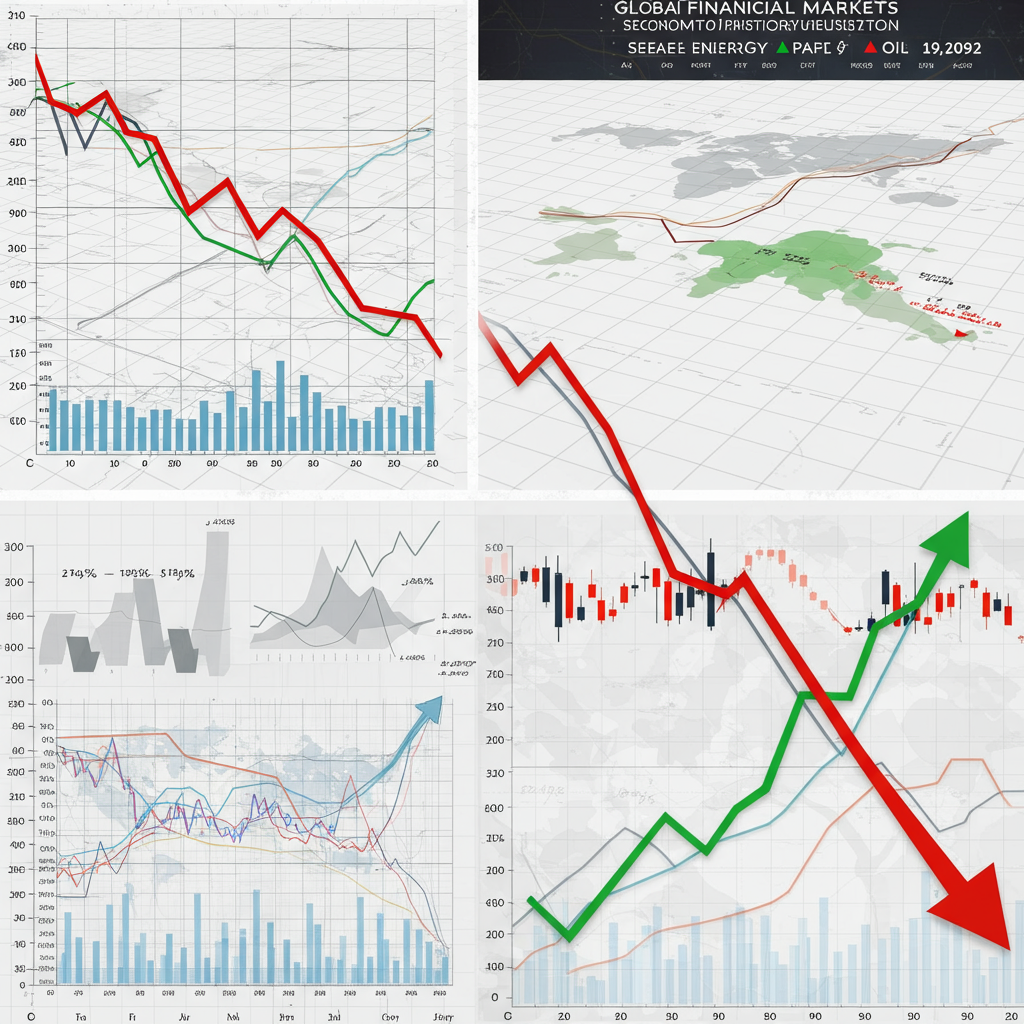Global financial markets reacted cautiously following the U.S. military strikes targeting three Iranian nuclear sites over the weekend. While the initial response saw oil prices climb, most global stock benchmarks and U.S. stock futures experienced declines as investors weighed the potential for escalation and awaited Iran’s next move.
The price of oil saw an immediate jump of over 2% at the start of trading before settling approximately 60 cents higher. The international benchmark, Brent crude, rose 0.7% to $77.59 a barrel, while U.S. crude also gained 0.7% to $74.36 a barrel. This initial upward pressure on oil reflects heightened geopolitical risk concerns.
However, stock markets largely trended downwards. U.S. stock futures for the S&P 500 and Dow Jones Industrial Average both slipped 0.3%, and the Nasdaq future contract fell 0.5%. Treasury yields remained relatively unchanged, suggesting a stable view on immediate broader economic conditions despite the geopolitical uncertainty.
European markets also opened lower, with Germany’s DAX losing 0.2%, France’s CAC 40 down 0.4%, and Britain’s FTSE 100 edging 0.1% lower.
The Critical Unknown: Iran’s Response
Analysts widely agree that the significant uncertainty facing markets stems from how Iran will retaliate or respond to the U.S. action. The strikes intensified existing questions surrounding the status of Tehran’s nuclear program.
The potential for further escalation is particularly concerning given Iran’s strategic location and its role as a major oil producer. Iran sits adjacent to the narrow Strait of Hormuz, a vital choke point through which a substantial portion of the world’s crude oil passes daily. Any disruption to this waterway, while technically challenging for Iran to completely close, could severely impact global oil transit, sending insurance rates spiking and making shipping perilous without naval escorts.
Differing Expert Outlooks
Market watchers offered varied perspectives on the likely course of events. Some analysts suggested the market’s relatively contained initial reaction reflected a belief that the conflict might be short-lived. The expectation was that the U.S. strike would be effective and lead back to a “business as usual” scenario, thus avoiding a panicked response from investors.
Several experts felt Iran would likely refrain from drastic measures. They pointed out that disrupting traffic through the Strait of Hormuz would be economically damaging for Iran itself, as it relies on the waterway to export its own crude, mainly to China. U.S. officials echoed this view, warning that such a move would be “economic suicide” for Iran and would trigger a strong U.S. response. Some analysts characterized a Strait closure as a “scorched earth possibility,” an outcome Tehran would likely avoid as leaders “aren’t crazy.” Under this scenario, oil prices would ease back after initial fears, and stock markets could recover.
However, other experts cautioned against assuming rational behavior from all involved parties. They warned that political or emotional reasons could drive Iran to lash out. A complete shutdown of the Strait of Hormuz, though unlikely, could send oil prices skyrocketing, potentially reaching $120 to $130 or even $150 a barrel. Such a spike would translate directly to much higher fuel prices for consumers and increase transportation costs across the board. This economic impact could also complicate efforts by central banks, like the U.S. Federal Reserve, to lower interest rates.
Mixed Reactions Across Asia
Asian markets, many of which are heavily reliant on oil imported through the Strait of Hormuz, showed varied reactions. Taiwan’s Taiex index fell 1.4%, while South Korea’s Kospi initially dropped before recovering some losses to end down 0.2%. Tokyo’s Nikkei 225 edged 0.1% lower, although gains were seen in defense contractors, oil companies, and miners, helping offset broader declines. Analysts noted that the U.S. strike could benefit defense equipment manufacturers, particularly in countries with significant military production like Japan and South Korea.
Conversely, Hong Kong’s Hang Seng regained ground to climb 0.6%, and markets in mainland China also advanced, with the Shanghai Composite index picking up 0.7%, partly driven by gains in energy companies benefiting from higher oil prices.
In currency markets, the U.S. dollar strengthened against the Japanese yen, rising to 147.18 from 146.66, while the euro climbed against the dollar to $1.1504 from $1.1473.
The situation remains highly fluid, and global markets will continue to closely monitor developments in the Middle East, with investor sentiment heavily dependent on whether Iran chooses a path of restraint or opts for a more aggressive course of action.



